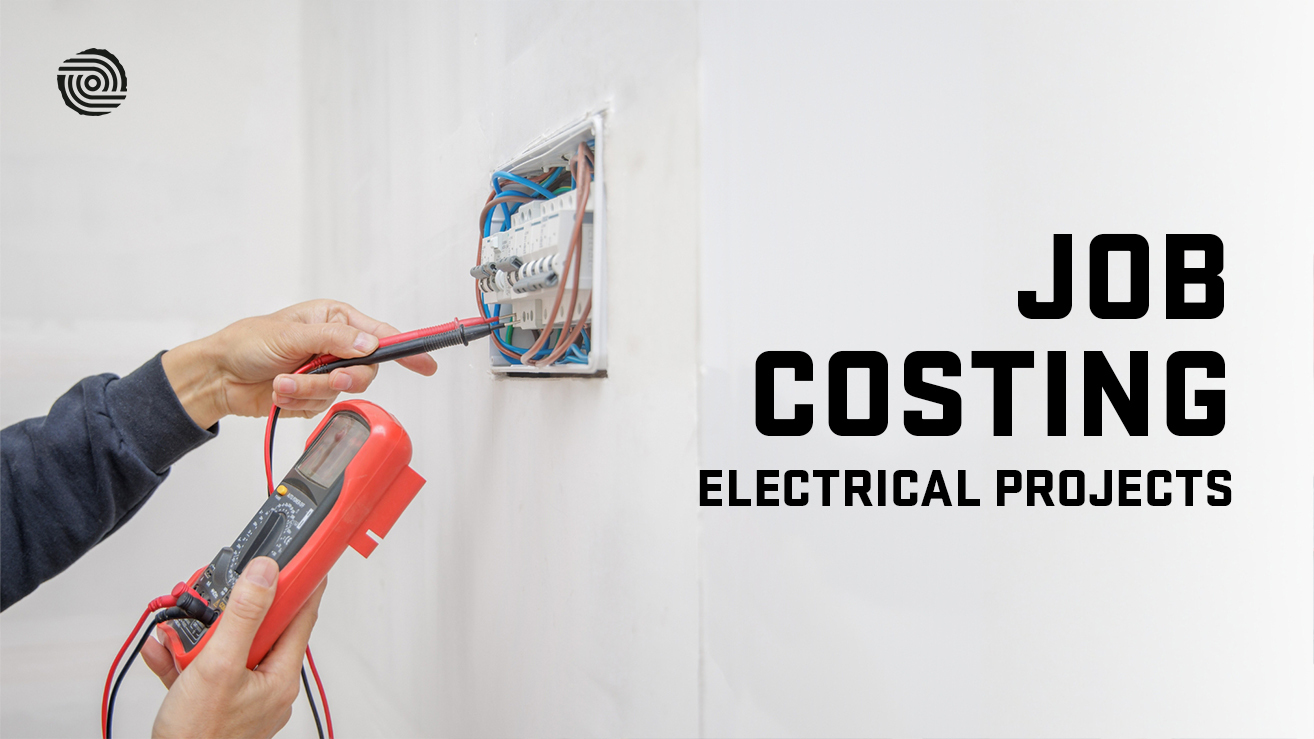Navigating Tax Deductions for Construction Businesses: A Bookkeeping Guide

Navigating the complex landscape of taxes can be daunting for any business owner, but for those in the construction industry, it involves unique challenges and opportunities. Construction businesses deal with significant expenses, from material costs to labor, and tracking all these financial elements effectively is crucial for maximizing tax deductions.
This guide aims to simplify the intricacies of tax deductions for construction enterprises, focusing on essential practices and key areas to help ensure that your business remains financially healthy and compliant with tax laws. By understanding and applying the correct tax deduction strategies, construction business owners can significantly reduce their taxable income and enhance their profitability.
How Are Construction Businesses Taxed?
The taxation of construction businesses can be complex due to the nature of the work and the variety of expenses involved. In the United States, construction businesses are generally taxed on their income like any other business, but there are several additional considerations that must be taken into account due to their specific operational activities.
Income from construction projects is typically considered ordinary business income and is taxed at the standard corporate rate if the business is incorporated. For unincorporated businesses, such as sole proprietorships or partnerships, income is passed through to the business owners and taxed as personal income.
One of the main taxation elements specific to construction is how income is recognized. Construction businesses can opt between two primary accounting methods for tax purposes: the Percentage of Completion Method (PCM) and the Completed Contract Method (CCM). PCM recognizes revenue and expenses of long-term contracts as a percentage of the work completed during the year, providing a more consistent flow of income. In contrast, CCM delays revenue and expense recognition until a contract is substantially completed, which can be beneficial for managing tax liabilities in certain situations.
Moreover, construction businesses must be aware of payroll taxes that apply to their workers. These include federal and state income tax withholdings, Social Security and Medicare taxes, and often, unemployment taxes under both the Federal Unemployment Tax Act (FUTA) and state unemployment tax acts (SUTA).
Given the variability of job sites and the transient nature of some construction work, state and local taxes also complicate the taxation landscape. Businesses must pay sales tax on materials and possibly even deal with different tax rates and rules depending on the location of their projects. Furthermore, property taxes might be applicable for owned real estate, such as offices and storage facilities.
Navigating these myriad tax responsibilities requires diligent bookkeeping and often the assistance of a professional knowledgeable in construction accounting and taxing.
Importance of Tax Deductions for Construction Business
Tax deductions serve as a significant aspect of financial planning and management for any business, and they are especially critical in the construction industry due to its high costs and thin profit margins. Understanding and maximizing the available deductions can enormously affect a company's overall profitability.
Reducing Taxable Income: Essentially, tax deductions reduce the amount of income subject to taxes. For construction companies where large sums can be tied up in payroll, equipment, and material expenses, deducting these costs can substantially decrease the taxable income, leading to significant tax savings.
Improving Cash Flow: Effective use of tax deductions can enhance a company's cash flow by minimizing the amount paid in taxes. This improvement in cash flow can be vital for maintaining operations, purchasing necessary materials, or even expanding the business.
Encouraging Business Investments: Many tax deductions are structured to encourage businesses to invest in equipment, training, or technology. Construction businesses can benefit from deductions for buying machinery or vehicles, improving their operational efficiency or capacity.
Compliance and Avoidance of Penalties: Properly navigating tax deductions isn't just about saving money; it's also about complying with tax laws. Incorrect deductions or failure to properly account for taxable income can lead to audits and penalties, which can negatively impact the business's financial health.
Here’s a look at some key deductions that are particularly relevant to construction businesses:
- Vehicle Expenses: Costs associated with vehicles used in a construction business, such as trucks or vans, can be deductible. This can include gas, repairs, and insurance costs. Depending on the usage, businesses may opt to deduct actual expenses or use the standard mileage rate provided by the IRS.
- Depreciation: Construction businesses can deduct the cost of their equipment and properties through depreciation, recognizing the expense across the useful life of the asset rather than all at once.
- Materials and Supplies: The cost of construction materials and supplies necessary for a specific job are typically fully deductible in the year they are purchased.
- Labor Costs: Wages paid to employees and subcontractors are one of the largest expenses for any construction business and are fully deductible.
- Home Office Expenses: For small construction business owners who manage their businesses from home, a portion of their home expenses can be deductible as home office expenses if the space is dedicated solely to business activities.
- Insurance: Premiums for different insurances like liability, property, and workers' compensation are necessary for construction operations and are deductible.
- Professional Fees: Fees paid for legal and professional services, including accountants specializing in construction accounting, are fully deductible business expenses.
- Interest: Interest on business loans or credit used for business operations, including purchasing equipment or property, can be deductible.
Each type of deduction has specific requirements and limitations, so it’s vital for construction businesses to maintain good records and consult with tax professionals. By maximizing their tax deductions responsibly, construction businesses not only ensure compliance but also optimize their financial operations, leading to potentially higher profitability and sustainability.
In sum, while the tax responsibilities of construction businesses are indisputably complex, the intelligent use of tax deductions offers a powerful tool for financial management and business growth. Understanding and applying these can make a substantial difference in the company’s financial health and competitive standing in the market.
Common Tax Deductions for Construction Workers and Businesses: Checklist
When managing the finances of a construction business or working as a construction professional, being aware of applicable tax deductions can significantly reduce your tax burden. Below is a checklist of common deductions that construction businesses and workers should consider:
- Vehicle Expenses: Deduct expenses related to business vehicles, including gas, maintenance, and depreciation.
- Equipment and Supplies: Costs for purchasing tools, safety gear, and construction materials can be deducted.
- Insurance Premiums: Deduct premiums for liability, theft, accident, and health insurance related to construction activities.
- Professional Fees: Fees for legal, accounting, and other professional services specifically related to the construction business are deductible.
- Home Office Expenses: If part of your home is used regularly and exclusively for business operations, you may be able to deduct a portion of your home expenses.
- Travel Costs: Expenses for business travel, including lodging and meals, can be deductible if related to construction work.
- Employee Wages and Benefits: Salaries, wages, bonuses, and benefits for employees are deductible expenses.
- Education and Training: Costs for education and training that enhance construction-related skills or are required to maintain professional certification are deductible.
- Marketing and Advertising: Expenses for marketing and promotional activities to attract new clients are deductible.
- Depreciation: Deduction for the depreciation of properties and equipment used in the construction business over their useful lives.
This checklist serves as a starting point; always consult with a professional accountant or tax advisor to ensure you fully maximize your deductions and remain compliant with tax laws.
Lorem ipsum dolor sit amet, consectetur adipiscing elit. Donec ullamcorper mattis lorem non. Ultrices praesent amet ipsum justo massa. Eu dolor aliquet risus gravida nunc at feugiat consequat purus. Non massa enim vitae duis mattis. Vel in ultricies vel fringilla.
Introduction
Mi tincidunt elit, id quisque ligula ac diam, amet. Vel etiam suspendisse morbi eleifend faucibus eget vestibulum felis. Dictum quis montes, sit sit. Tellus aliquam enim urna, etiam. Mauris posuere vulputate arcu amet, vitae nisi, tellus tincidunt. At feugiat sapien varius id.
Eget quis mi enim, leo lacinia pharetra, semper. Eget in volutpat mollis at volutpat lectus velit, sed auctor. Porttitor fames arcu quis fusce augue enim. Quis at habitant diam at. Suscipit tristique risus, at donec. In turpis vel et quam imperdiet. Ipsum molestie aliquet sodales id est ac volutpat.

Ipsum sit mattis nulla quam nulla. Gravida id gravida ac enim mauris id. Non pellentesque congue eget consectetur turpis. Sapien, dictum molestie sem tempor. Diam elit, orci, tincidunt aenean tempus. Quis velit eget ut tortor tellus. Sed vel, congue felis elit erat nam nibh orci.
Dolor enim eu tortor urna sed duis nulla. Aliquam vestibulum, nulla odio nisl vitae. In aliquet pellentesque aenean hac vestibulum turpis mi bibendum diam. Tempor integer aliquam in vitae malesuada fringilla.
Elit nisi in eleifend sed nisi. Pulvinar at orci, proin imperdiet commodo consectetur convallis risus. Sed condimentum enim dignissim adipiscing faucibus consequat, urna. Viverra purus et erat auctor aliquam. Risus, volutpat vulputate posuere purus sit congue convallis aliquet. Arcu id augue ut feugiat donec porttitor neque. Mauris, neque ultricies eu vestibulum, bibendum quam lorem id. Dolor lacus, eget nunc lectus in tellus, pharetra, porttitor.
Ipsum sit mattis nulla quam nulla. Gravida id gravida ac enim mauris id. Non pellentesque congue eget consectetur turpis. Sapien, dictum molestie sem tempor. Diam elit, orci, tincidunt aenean tempus. Quis velit eget ut tortor tellus. Sed vel, congue felis elit erat nam nibh orci.
Mi tincidunt elit, id quisque ligula ac diam, amet. Vel etiam suspendisse morbi eleifend faucibus eget vestibulum felis. Dictum quis montes, sit sit. Tellus aliquam enim urna, etiam. Mauris posuere vulputate arcu amet, vitae nisi, tellus tincidunt. At feugiat sapien varius id.
Eget quis mi enim, leo lacinia pharetra, semper. Eget in volutpat mollis at volutpat lectus velit, sed auctor. Porttitor fames arcu quis fusce augue enim. Quis at habitant diam at. Suscipit tristique risus, at donec. In turpis vel et quam imperdiet. Ipsum molestie aliquet sodales id est ac volutpat.
Mi tincidunt elit, id quisque ligula ac diam, amet. Vel etiam suspendisse morbi eleifend faucibus eget vestibulum felis. Dictum quis montes, sit sit. Tellus aliquam enim urna, etiam. Mauris posuere vulputate arcu amet, vitae nisi, tellus tincidunt. At feugiat sapien varius id.
Eget quis mi enim, leo lacinia pharetra, semper. Eget in volutpat mollis at volutpat lectus velit, sed auctor. Porttitor fames arcu quis fusce augue enim. Quis at habitant diam at. Suscipit tristique risus, at donec. In turpis vel et quam imperdiet. Ipsum molestie aliquet sodales id est ac volutpat.
- Lectus id duis vitae porttitor enim gravida morbi.
- Eu turpis posuere semper feugiat volutpat elit, ultrices suspendisse. Auctor vel in vitae placerat.
- Suspendisse maecenas ac donec scelerisque diam sed est duis purus.

Lectus leo massa amet posuere. Malesuada mattis non convallis quisque. Libero sit et imperdiet bibendum quisque dictum vestibulum in non. Pretium ultricies tempor non est diam. Enim ut enim amet amet integer cursus. Sit ac commodo pretium sed etiam turpis suspendisse at.
Tristique odio senectus nam posuere ornare leo metus, ultricies. Blandit duis ultricies vulputate morbi feugiat cras placerat elit. Aliquam tellus lorem sed ac. Montes, sed mattis pellentesque suscipit accumsan. Cursus viverra aenean magna risus elementum faucibus molestie pellentesque. Arcu ultricies sed mauris vestibulum.

Essential resources for contractors





